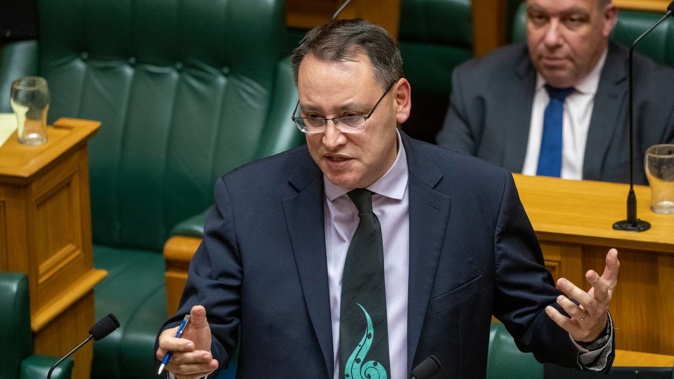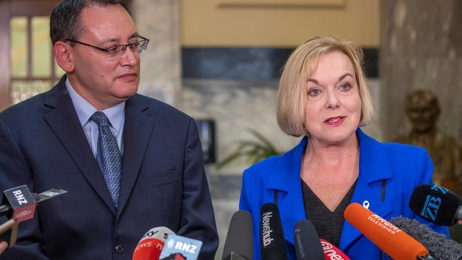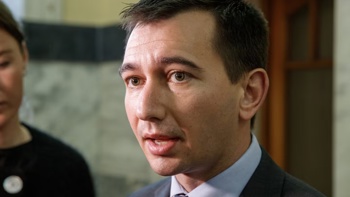
Shane Reti has been elected as National's deputy leader.
He was selected by his caucus after a nearly two hour long meeting.
MPs have just emerged from that meeting and National leader Judith Collins will front a media stand up with Reti this afternoon.
Gerry Brownlee announced last week he would not seek reappointment as the deputy leader.
Speaking to media before the caucus meeting, Collins would not say who was tipping to be her deputy.
"I believe the caucus is very happy with what I've been doing – but also the party needs stability and it needs to move on."
According to the party's constitution, the caucus votes on the leadership after every election.
Reti – or Dr Shane as Collins referred to him during the campaign – shares a rather bleak commonality with Brownlee: they both lost usually safe National seats this election.
On election night, it looked as if Reti had just scrapped in in Whangarei, with the preliminary results showing a margin of 164 votes.
But after the specials were counted, Reti had lost by 431 – the closest margin this election - to Labour's Emily Henderson.
This is a far cry from the 13,169 margin he won when he first entered Parliament in 2014.
Brownlee lost the Ilam seat which he had held since the seat was created in 1996.
Reti, 57, had more or less kept his head down between then and earlier this year and didn't' have much if a national profile until Covid-19 hit New Zealand's shores.
Even then, he took a back seat to National's then health spokesman Michael Woodhouse before being promoted in Collins first re-shuffle.
After that, he was one of National's main players.
He went from number 31 on Simon Bridges' list, to 17 under Todd Muller's leadership, soon after being bumped up to 13 in another Muller reshuffle, before being catapulted to number 5 under Collins.
Reti used his medical background to take the Government to task over its Covid-19 performance and to challenge Health Minister Chris Hipkins over the decisions he made.
His approach in the House was more clinical than political.
Speaking to the Herald a few months ago, he said his role was the two Cs: "To critique and to collaborate".
Having studied at Auckland medical school, Reti practised medicine in Whangarei for 16 years and served for three terms on the Northland District Health Board.
He then worked in the United States for seven years, becoming a Harkness Fellow at the Harvard Medical School and worked in Beth Israel Deaconess Medical Centre in Boston, a teaching hospital for Harvard.
In his maiden speech, he said he had been born into a statehouse, the eldest of five children in a working-class Maori family whose father had left school at 14 and mother had left school at 15.
He described an important event in his childhood that he said had shaped his attitude to life, including an example of institutional racism.
"In my student years I would usually study during the day and at night commercial clean with dad, vacuuming floors, cleaning toilets, and dusting blinds," he said.
"One year I asked the administrator whether I could sit not five subjects but six subjects, like all my friends were. I remember the reply: 'No, Shane. You're a Māori boy. You'll do five.'"
He said his internal response was a call to arms – "Right. I will show you."
His external response was to win the English prize that year.
"No, not for me six subjects. I was still allowed to sit only five. But many years later, when I was promoted to assistant professor at Harvard, I think I made my point," he told MPs at the time.
"I won, but many Māori do not. The educational aspirations of Maori must never ever be bound by the preconceptions of others."
Take your Radio, Podcasts and Music with you









